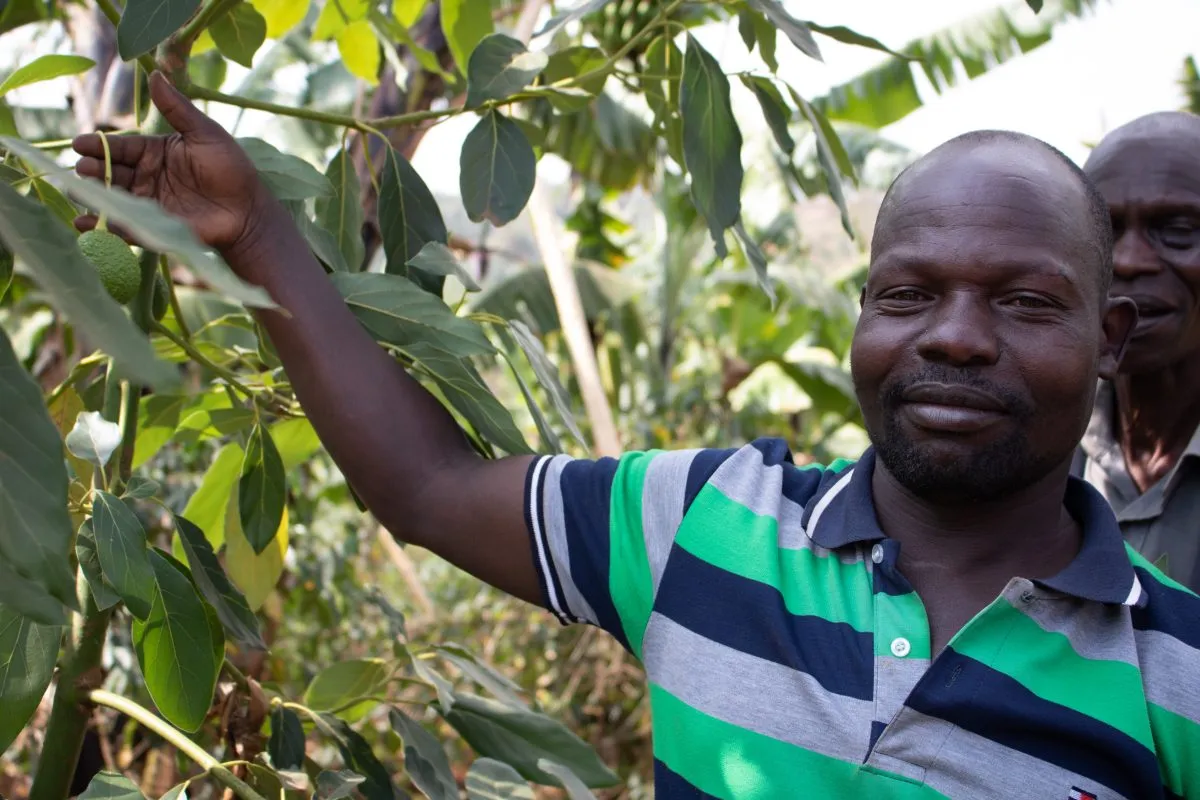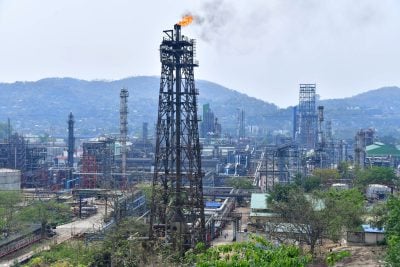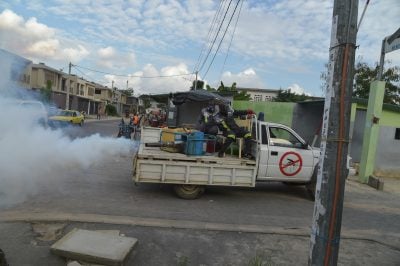Good business, explains Uganda’s President Yoweri Museveni as he sits under a large mahogany tree addressing a group of journalists on a sponsored visit from the United Kingdom and the United States, “requires four factors of production – land, labour, capital and entrepreneurship. The UK has capital and entrepreneurship, we have land and labour.” He is speaking amid reports of the UK experiencing an unexpected shortage of fresh vegetables, attributed to inclement weather in Southern Europe and North Africa and to supply-chain disruptions. Museveni argues that produce from Uganda could have been used to stock up shelves.
The pitch for UK business is part of the government’s campaign to increase awareness of its agricultural output and boost exports to Western markets. A new initiative by the government, entitled the Presidential Advisory Committee on Exports and Industrial Development (PACEID), was launched a year ago. Composed of and led by the private sector, PACEID is keen to transform and upgrade Uganda’s export potential. The committee running the body has set an ambitious target of raising revenue from fruit and vegetables from the current $45m to $197m by 2027.
Promoting food safety
One company determined to push Ugandan produce far and wide and help increase revenue from this source is Zahra. Set up in 2018, it is a food processing company operating out of the capital Kampala.
Zahra promotes itself as one of few companies in Uganda to be certified under the International Organization for Standardization (ISO) Food Safety Management System. Zahra processes a range of fresh and dried fruits, nuts, teas, herbs and spices. The company is making a transition to sell all its products under the brand name “Blossomz”. Dried pineapples and mangos have begun to grace the shelves of supermarkets in Kenya and Uganda, and Zahra has an exclusive deal with Uganda Airlines to supply nuts and other snack products. But perhaps Zahra’s most innovative product is dried jackfruit.
While the sale and export of jackfruit itself is not unusual, at present most jackfruit is exported cans. With a shelf-life of 18 months, a kilo of dried jackfruit can yield 8 kilos of jackfruit “meat”. Jackfruit is currently mainly exported to the Netherlands.
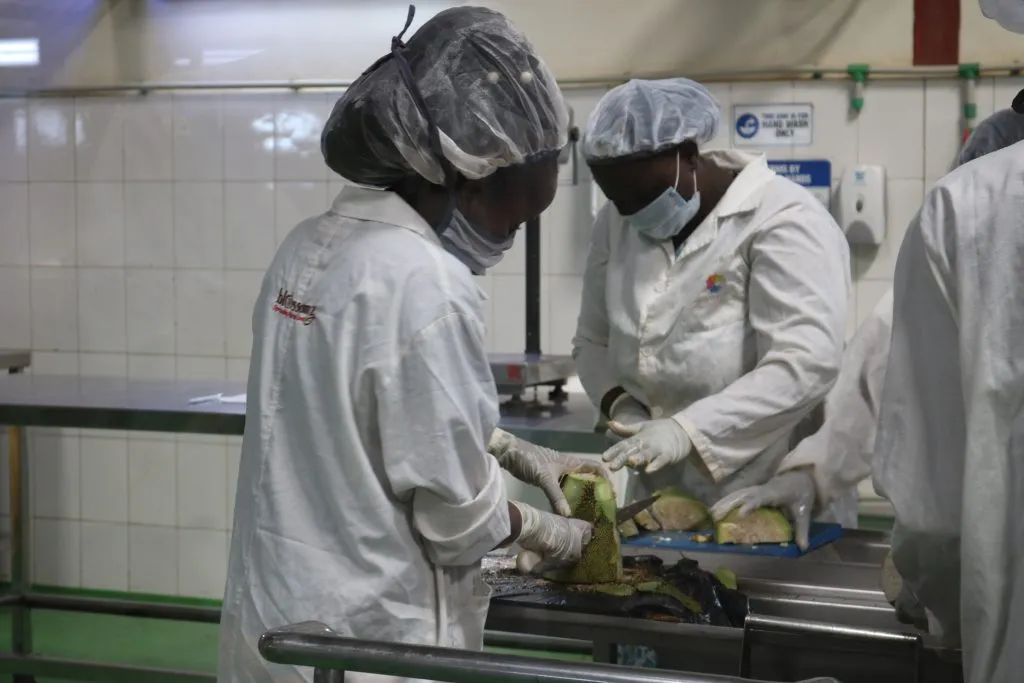
Enormous, spiky-skinned fruits
Mature jackfruit trees are common in Uganda and can produce between 200 to 500 of the enormous, spiky-skinned fruits – each weighing between 10 kg and 25 kg – a year. The trees grow in most farmsteads and home gardens, with each plot sustaining three or four trees.
Zahra sends team leaders all over the country to meet smallholders, collect the fruits, and use an app to log and weigh the jackfruits before bringing them back to the base. There they undergo quality assurance and are processed, packaged and prepared for export.
The fibrous flesh of the jackfruit has a meat-like texture. It easily absorbs flavours – making it an ideal meat substitute, says the company.
Jackfruit has seen a global rise as an alternative to tofu and other meat substitutes. It grows naturally, and its production requires no deforestation. The abundant jackfruit in Uganda had little commercial exposure until companies like Zahra began to adapt it for international trade, bringing extra income to farmers and rural households.
An unusual problem
An unusual problem can, however, cause supply problems. The fruit itself has an almost mythological significance in Uganda – and in some places is regarded as something never to be sold. Some see the fruit as food insurance – “even if you can’t make money, you can always eat your jackfruit” the saying goes. You should always have enough to offer your neighbours some.
Tradition around jackfruit is so strong that Zahra has found, several times, that collected jackfruits have been destroyed by angry farmers.
Nonetheless, Zahra is persistent. The firm has a 39% female workforce, and founder Quresh Fidahusein says that the company is in discussions about setting up some operations in refugee camps. Uganda hosts over 1.5m refugees, and the new project would give the refugees an opportunity to make sustainable wages and engage in the local economy.
Zahra’s ambition is to promote its Blossomz brand not only in East African supermarkets – where it already holds a niche – but to expand its footprint in the global market, through products such as vegan samosas, meatballs, and “Rolex” chapati wraps- one of Uganda’s favourite snacks.
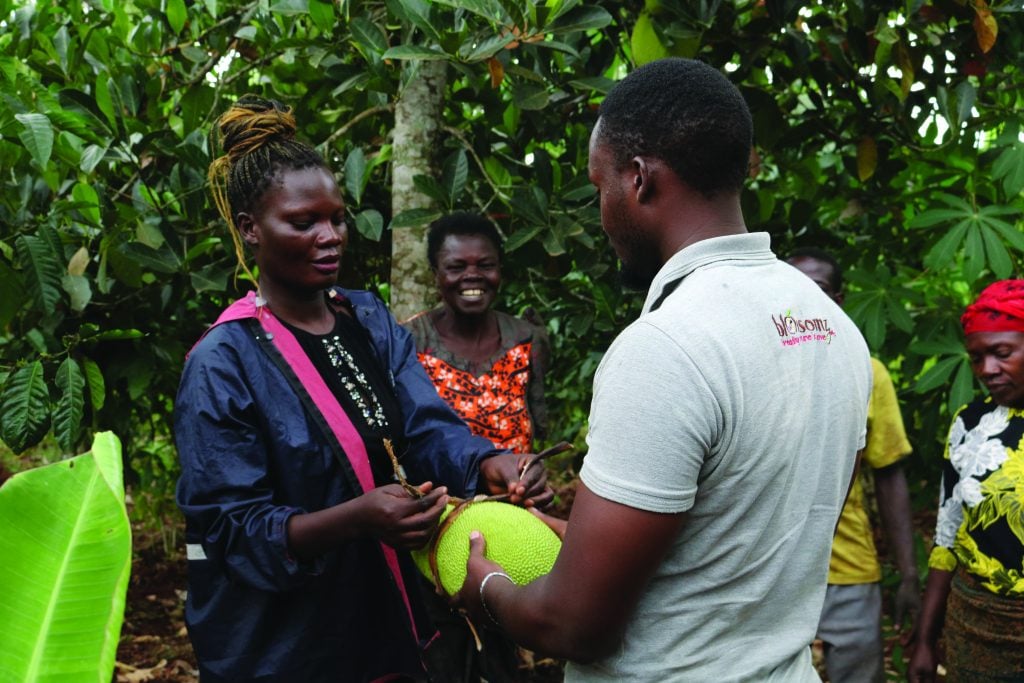
Not flying off the shelves
However, Zahra, in common with other fresh foods producers, has a major headache ahead. Some international supermarket chains, such as the Dutch Albert Hejn, have stated they will no longer stock products transported by air freight from June 2023.
This poses huge problems for a landlocked country such as Uganda, despite its negligible contribution to global climate change.
Another challenge Zahra faces is endemic poor infrastructure, high transportation costs, and uncertain regulations. PACEID is working to tackle these issues by setting specific export targets, developing market intelligence and commercial strategies, and ensuring that producers comply with technical and phytosanitary requirements of trade partners.
Rigorous safety checks are carried out not only at production sites but also at the airport, which has been revamping its storage facilities and quality assurance checks. Any produce failing to meet the regulations leads to a ban of the producer.
Economic stability is vital
The performance of companies like Zahra and the development of high-value specialty coffees could lead to a multiplier effect and add considerable value to Uganda’s agriculture sector – which in turn could increase the size of the middle class in the country.
Middle-class-supported trade is seen as a stabilising force, not only within the country but also in terms of regional and international trade.
Asked about how regional instabilities in Eastern Congo could impact the AfCTA deals, Museveni responds that “The middle class is the stabilising class,” and argues that its absence has fed instability. Heightened trade would ensure a heightened middle class, creating more stability, he says.
In addition, the AfCTA is seen as a vital tool both when it comes to tackling regional insecurities and forging the future of Africa. “Africa was shattered. You have to get glue and assemble each piece. The best tool to glue shattered glass is the AfCTA. Trade is the best way to do it,” says Odrek Rabwogo, presidential advisor and head of the PACEID committee.
Agriculture is at the heart of Uganda’s economy, he says, and protecting rivers and land will prove critical to its future.
But the country faces difficult choices. With commercial oil production expected to begin in 2025, Uganda faces trade-offs between its traditional reverence for the land and the development of oil infrastructure, including the Uganda-Tanzania oil pipeline. Environmentalists will be closely watching the impact on the fertile agricultural lands that continue to provide a vital revenue stream.
Want to continue reading? Subscribe today.
You've read all your free articles for this month! Subscribe now to enjoy full access to our content.
Digital Monthly
£8.00 / month
Receive full unlimited access to our articles, opinions, podcasts and more.
Digital Yearly
£70.00 / year
Our best value offer - save £26 and gain access to all of our digital content for an entire year!


 Sign in with Google
Sign in with Google 